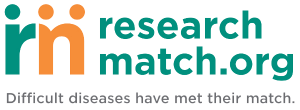
Clinical research helps translate studies done in labs to new medicines, devices, products, and treatments for humans. This research focuses on whether these new resources are safe and effective for people.
Clinical research can focus on a very small group of people when answering questions about safety and effectiveness. It can also focus on a much broader group of people. The group size ultimately depends on the questions the research is trying to answer.
Clinical research has transformed modern medicine.
Just 50 years ago, doctors did not have the knowledge or resources to treat some of the world’s deadliest diseases or more common conditions. Many of the medical advances we have today had not been discovered: certain antibiotics and vaccines, drug therapies for cancer, drugs that lower high blood pressure and cholesterol, and tests like MRI and CT scans.
Clinical research helped develop these treatments, and the decades ahead hold as much promise. Discoveries and advances in genetics, drugs, surgical techniques, and diagnostic tools will continue to transform medicine and positively impact the lives of our friends, family, and neighbors.
Future medical discoveries are not possible without clinical research. And clinical research is not possible without volunteers.
Too many research studies end early or never begin because there are not enough volunteers. Researchers are working hard to find new and better ways to treat diseases, but they need people like you to help contribute.
You can help make history by participating in research. Working together, we can improve healthcare for years to come. Join us to improve the health of others.
Research studies test whether new medicines, devices, or procedures are safe and how well they work.
There is a critical need for volunteers for these studies. Low enrollment in research studies is one of the largest problems facing the development of new and improved treatments. Eighty-five percent of studies get started late and 40 percent never finish because of a shortage of volunteers.
When you participate in a research study, you are helping to move research forward. This means that cures and treatments are able to reach people more quickly.
This site can help you find studies that match your interests or needs. Both healthy volunteers and people with specific health conditions are needed to help answer important healthcare questions.
Browse Open StudiesWe also encourage you to learn more about the two nationally focused research endeavors below.
All of Us Research Program
 All of Us is a new research program from the National Institutes of Health (NIH). The goal is to advance precision medicine. Precision medicine is health care that is based on you as an individual. It takes into account factors like where you live, what you do, and your family health history. Precision medicine’s goal is to be able to tell people the best ways to stay healthy. If someone does get sick, precision medicine may help health care teams find the treatment that will work best.
All of Us is a new research program from the National Institutes of Health (NIH). The goal is to advance precision medicine. Precision medicine is health care that is based on you as an individual. It takes into account factors like where you live, what you do, and your family health history. Precision medicine’s goal is to be able to tell people the best ways to stay healthy. If someone does get sick, precision medicine may help health care teams find the treatment that will work best.
To get there, the study needs one million or more people. Those who join will share information about their health over time. Researchers will study this data. What they learn could improve health for generations to come.
ResearchMatch
 The ITHS is pleased to participate in ResearchMatch, a free, nationwide database of potential research volunteers sponsored by the National Institutes of Health. The goal of ResearchMatch is to bring volunteers together with researchers working towards new medical treatments (not just clinical trials).
The ITHS is pleased to participate in ResearchMatch, a free, nationwide database of potential research volunteers sponsored by the National Institutes of Health. The goal of ResearchMatch is to bring volunteers together with researchers working towards new medical treatments (not just clinical trials).
Many studies are looking for healthy people of all ages, while some are looking for people with specific health conditions. Considering becoming a ResearchMatch volunteer? Visit the ResearchMatch website to learn more about the registry, and be sure to read the Volunteer FAQ.